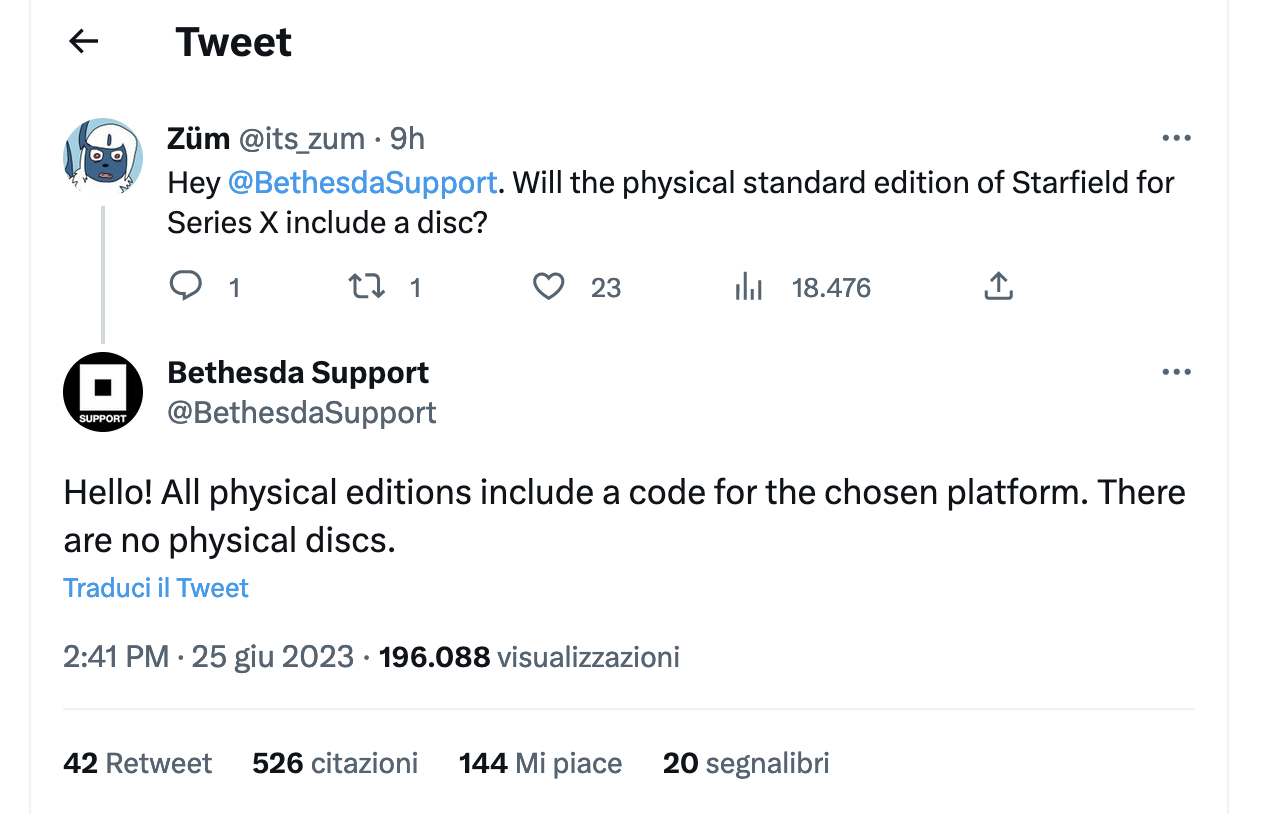this post was submitted on 25 Jun 2023
312 points (97.6% liked)
Gaming
20231 readers
81 users here now
Sub for any gaming related content!
Rules:
- 1: No spam or advertising. This basically means no linking to your own content on blogs, YouTube, Twitch, etc.
- 2: No bigotry or gatekeeping. This should be obvious, but neither of those things will be tolerated. This goes for linked content too; if the site has some heavy "anti-woke" energy, you probably shouldn't be posting it here.
- 3: No untagged game spoilers. If the game was recently released or not released at all yet, use the Spoiler tag (the little ⚠️ button) in the body text, and avoid typing spoilers in the title. It should also be avoided to openly talk about major story spoilers, even in old games.
founded 5 years ago
MODERATORS
you are viewing a single comment's thread
view the rest of the comments
view the rest of the comments

Pretty straightfoward. And understanable IMO.
If I have a physical disk of something, I can put it in a compatable system and play/watch it regardless of whether my internet is out or just shitty in general, even years down the line (as far as I'm aware, the devs/company have yet to be able to register/tie disks to devices, and they're not gonna break into my place and take my media away. So while I don't own the thing, my copy is my copy to do with as I please so long as I'm not passing it around for others to download). It's also not tied to any account, so my use of the thing doesn't hang on whether i have a Steam account or a Netflix account or whathaveyou. There's also media preservation, and just the fact that some people like to have something tangible that they can say "this is mine".
Discrot and failing hardware is a problem...but personally, as long as I have a receipt or proof of purchase for it, I'm not gonna lose sleep over getting it from alternative sources if i can't rip the data off the thing myself. It's simple: the company gets my money, they give me a copy of the software, and that's it. What they do with that cash is not my business and what I do with that copy (unless I'm either illegally distributing it or reverse engineering it for my own profit) is not thiers.
That was a valid argument, but in the days of 40+ GB day one patches and the likes, I firmly believe that the disc will become useless as soon as someone decides to kill the servers, usually ~5-10 years down the line depending on the success and popularity of the game/franchise.
Case in point: My physical copy of Overwatch.
Man, I still get pissed off whenever I remember what was promised in regards to Overwatch 2 and what was delivered.
This is a good argument for physical copies of pre-internet games. Now? The game you have on your disc is incomplete. You need the internet and an Xbox account™ to download 65 more gigabytes on Day 1 to avoid a bug where using a bow and arrow on a horse crashes the game. There's a Roadmap™ for the 40% of the game they're delivering as DLC over the next couple of years. Hell, on the Switch there are firmware versions that explicitly disallow you from booting game cartridges without downloading the update for that game - what happens in 20 years when Nintendo isn't serving those update files? How meaningful for preservation is your BOTW cartridge then?
Piracy and DRM-free digital content are the only methods of preservation. Full stop. The fight isn't physical vs digital, it's DRM vs DRM-free (pirated counts as DRM-free). If I buy a game on GOG and store its installer on my PC, which is backed up to my server, which has a SnapRAID array that tolerates two drive failures, that game's mine. It'll work if GOG goes out of business and takes down its CDN, it'll work if the dev loses the rights to the soundtrack, it's immune to the devs deciding I'd rather have Witcher 3 with ✨ray tracing✨, it's immune to Blizzard "reforging" my Warcraft 3, I can't have account details stolen and subsequently banned...